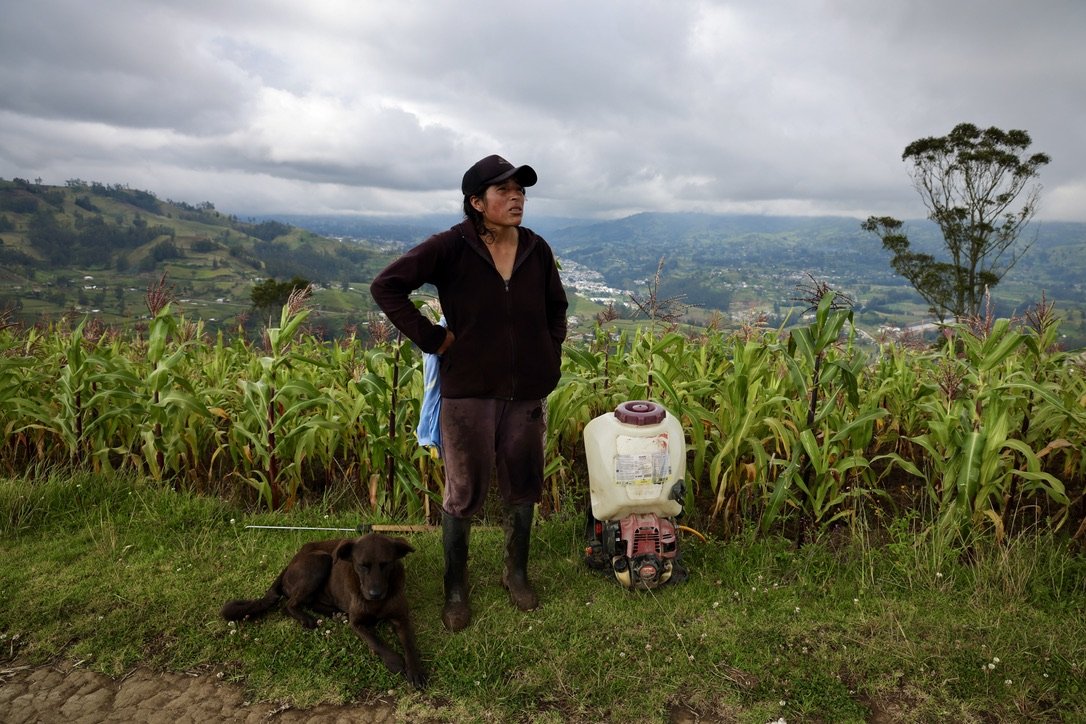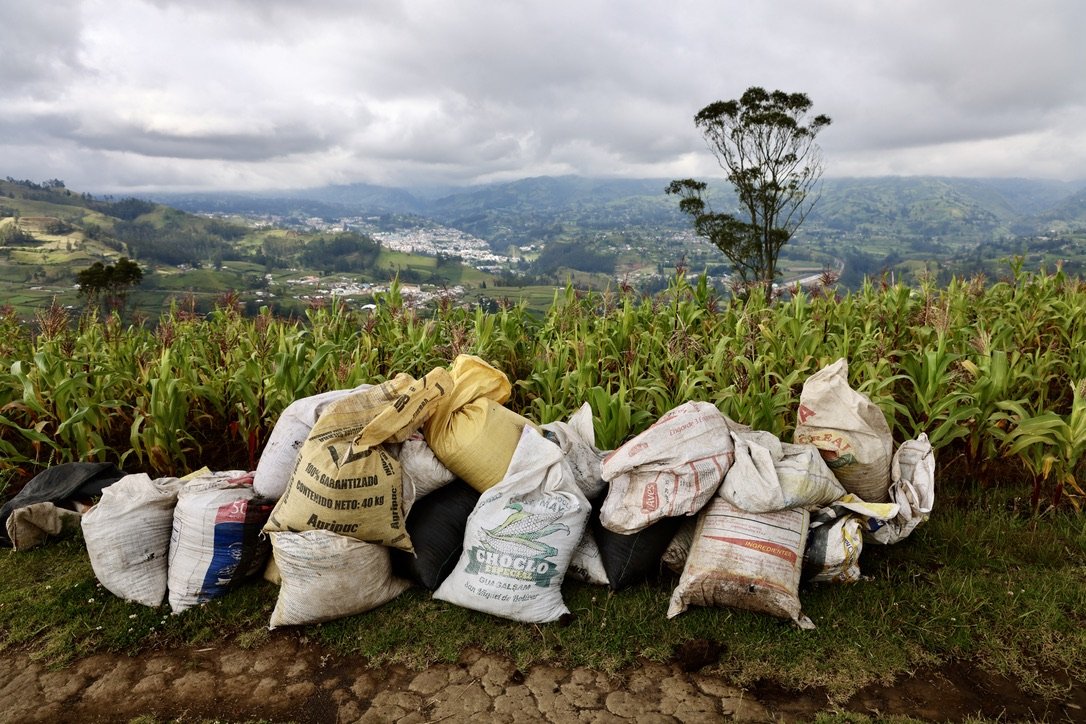Farmer Rosa
Rosa was born and raised in a small community outside of Illapa, Ecuador, near the growing town of Santa Fe. She is one of five siblings born to an agrarian family. Growing up, Rosa always loved working in the fields, and although she did want to pursue an education, she was unable to due to her family’s financial situation. She met her husband at a young age, and was able to start a family with him as they relocated to Illapa, nearby her hometown. There, Rosa continued to work on lands with her husband, some which they rented some which they owned . Once Rosa knew she was expecting her first child, she had no choice but to continue working and helping in the farm.
Rosa catching her breath after a round of fumigations in the fields.
Her pregnancies were hard: without taking breaks from work, she was pushing her body physically and emotionally. While her first pregnancies came with no complications, she had a premature birth for her first daughter: she was born at only 6 months in the womb. Rosa’s body was also more affected by this pregnancy, and she felt constant stabbing pain in her stomach, so she knew something is wrong. It was a difficult time for the family. Once her baby was born, the doctors let Rosa know that her baby’s brain would not be able to fully develop like an average child, and that it was likely due to her intense work with pesticides in the fields. Although Rosa and her family use homemade protective gear, a lot of these pesticides are still not deemed safe when used for extended periods of time, which Rosa had to do as it was just her and her family working. With the hazards with pesticides in this line of work and the hardships of experiencing a pregnancy and not being able to take time off work, Rosa and her husband decided to not have more children, worried that their children would face health challenges as their premature daughter did.
Unfortunately, Rosa and her family are not able to plant and harvest without fertilizer.
Lack of Farmer Protections
Rosa and the doctors she saw during the birth and development of her third child attributed the baby’s developmental issues to the adverse impacts of pesticides on Rosa’s body during her pregnancy. However, with an increased presence of pests and other climate changes affecting crops, it’s impossible to plant and harvest without the help of pesticides. It’s a dilemma that led Rosa and her husband to decide to not have any more children.
On top of the health hazards new to modern farmers, Rosa also expressed the lack of income security from agrarian work with no government protection and securities. While every year Rosa’s investment in the crop from labor to pesticides fluctuate but increase over time, the crop payout after harvesting has been a wildcard. Some years, the crop prices are good and farmers make money off their harvest, other times it’s barely enough to cover the production costs.
Rosa’s Livestock
Having grown up helping her family care for animals after school, Rosa has always loved caring for the farm animals. Living in the isolated countryside however, Rosa and her community have been victims of theft in the past. Since animals like her cows and sheep need fresh pasture and open space to feed and all of their land is for crops with no fences, she has to rotate them a few times a day, and they are tied and are left unattended as Rosa is on the go. She also does not have the option to leave them at her home since there isn’t enough space. Her sheep have been stolen before, causing a huge distress and financial loss to the family. Rosa and her family stay attentive to the animals, and Rosa’s daughter even helps shepherd the sheep when she can.
Today, Rosa has 12 cows, 13 sheep, 4 pigs, and some chickens.“I love my cows”, Rosa says fondly when describing her animals, “more than my sheep”, and describing how much her daughter actually enjoys caring for the family’s sheep.




